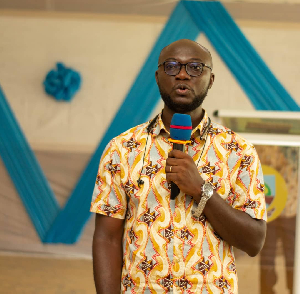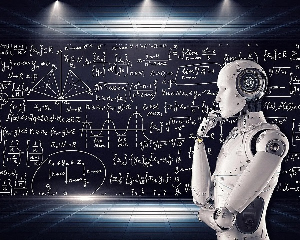Michael Oberteye Blog of Monday, 6 January 2025
Source: Oberteye Michael
Harnessing cyber-physical systems potential will advance smart decision making -Dr Boateng

Dr. Samuel Boateng, a Visiting Assistant Professor at the School of Information Technology at the University of Cincinnati ,United States, has underscored the importance of harnessing the potential of Cyber-Physical Systems (CPS).
According to him, CPS would bridge the gap between the physical and digital worlds, leading to the development of intelligent solutions for industries, infrastructure, and governance.
He asserts that the future of decision-making lied in the integration of Artificial Intelligence (AI) with Cyber-Physical Systems.
With researchers at the forefront of this technological advancement, Dr. Boateng sees boundless potential for CPS to drive economic growth, sustainability, and resilience and therefore advocates for increased investment in these technologies to connect the world.
Dr. Boateng, an expert in AI and big data analytics,explained in an increasingly interconnected world, that the integration of physical systems with digital technologies has paved the way for smart, data-driven decision-making.
He elaborated, Cyber-Physical Systems utilize sensors, embedded systems, and data analytics to monitor, analyze, and control physical processes in real-time.
Dr. Boateng envisions these systems revolutionizing sectors such as transportation, energy, healthcare, and urban planning, enabling more efficient and responsive decision-making.
He intimated that he had utilized the CPS to develop innovative decision-support frameworks that integrate artificial intelligence (AI) with CPS, stressing these frameworks are designed to create scalable and adaptive solutions for complex systems.
Adding, his research in CPS focused on designing frameworks that not only improve decision-making processes but also contribute to sustainable development., citing, his work on GIS-based decision-support systems has shown how CPS could optimize land use, water management, and environmental protection.
Dr. Boateng stressed the significant economic impact of CPS, highlighting its ability to enable predictive maintenance, optimize resource allocation, and reduce waste by improving efficiency and sustainability across various industries, since it plays a crucial role in driving economic growth.
He said despite its immense potential, the adoption of CPS presented challenges such as cybersecurity risks, data privacy concerns, and the need for robust infrastructure.
Addressing these challenges ,Dr Boateng said required interdisciplinary collaboration and investment in scalable technologies that prioritize security by combining computational intelligence with real-time data, systems can be created that are not only efficient but also resilient and adaptive.














